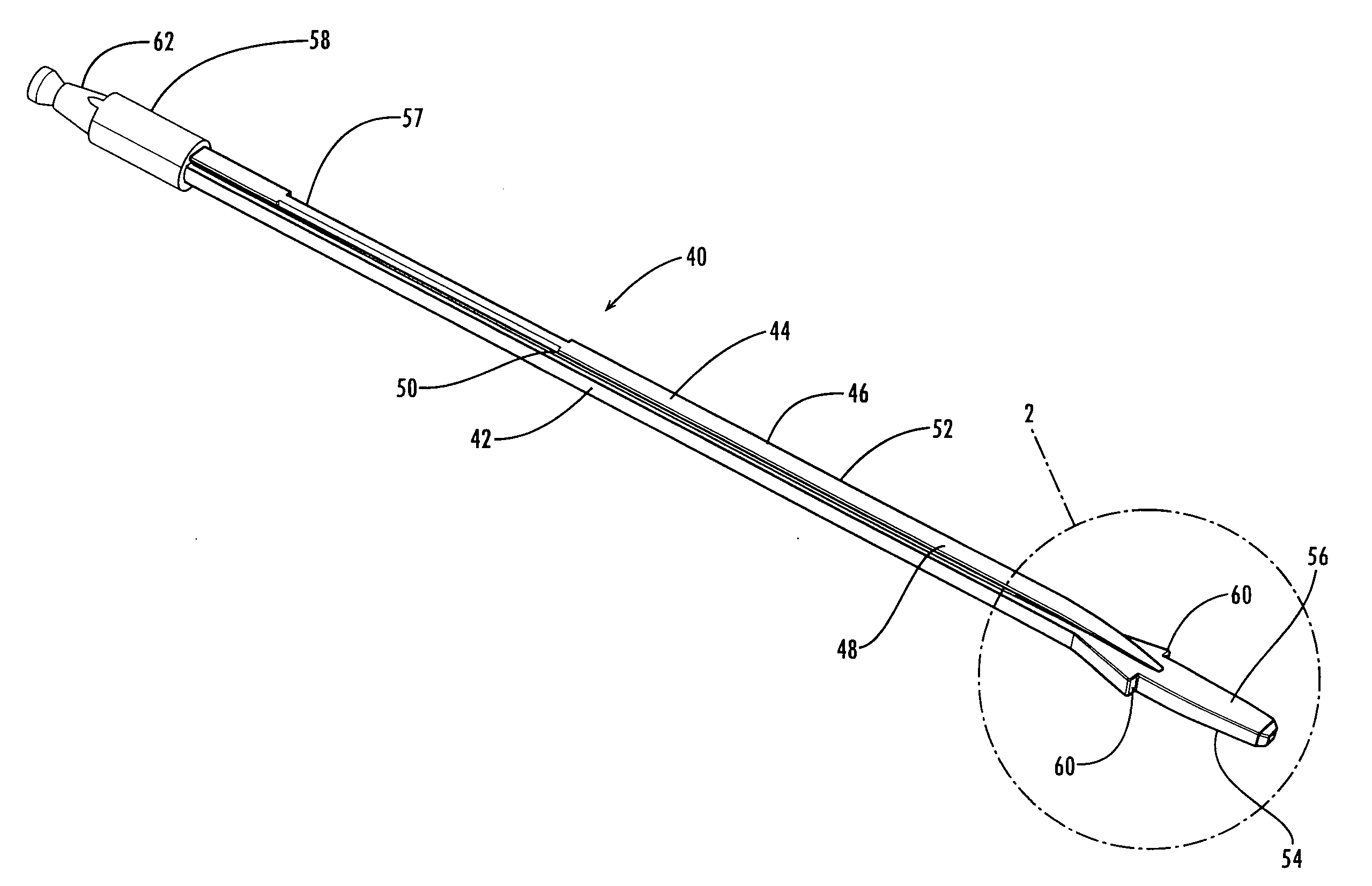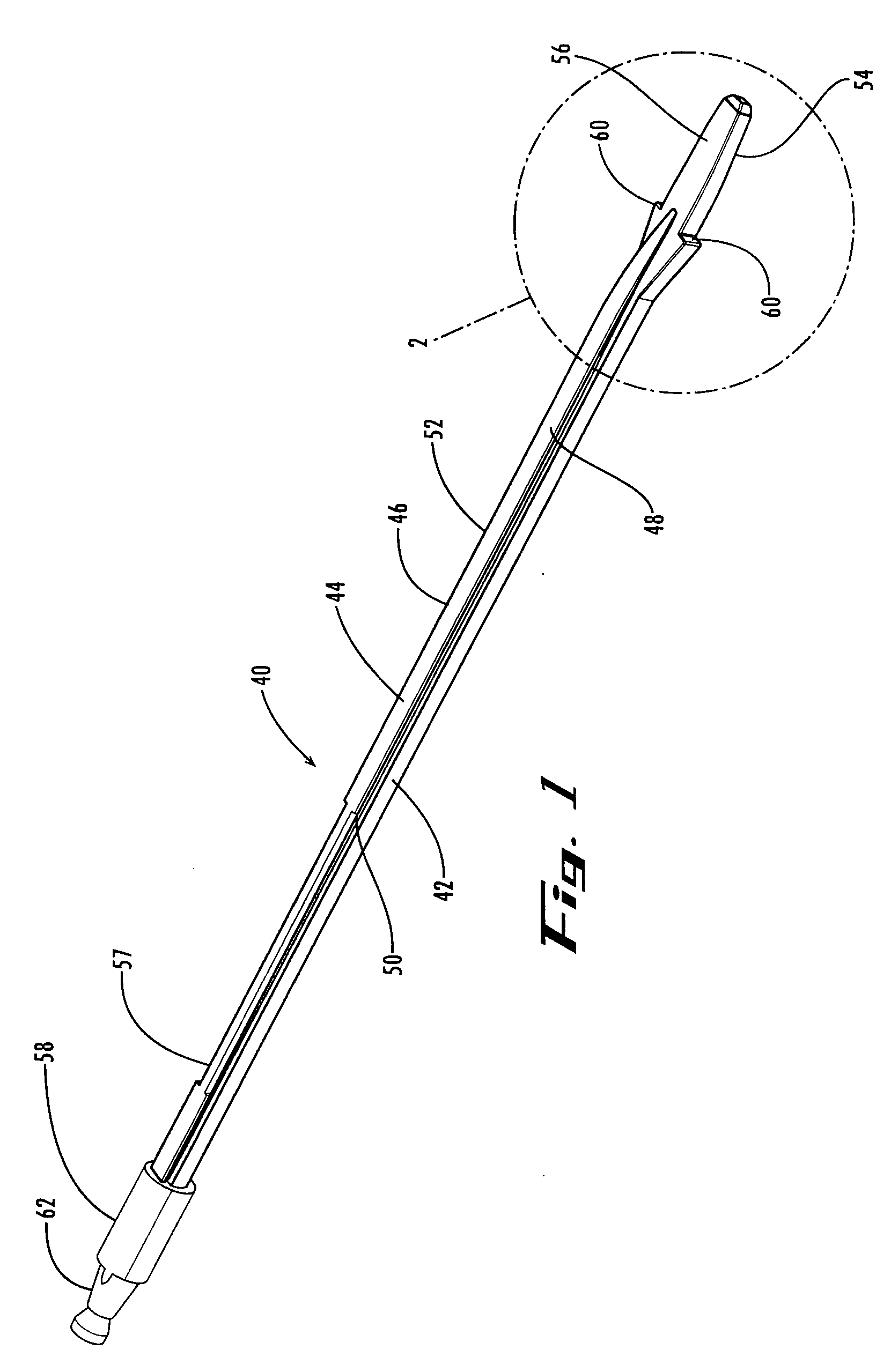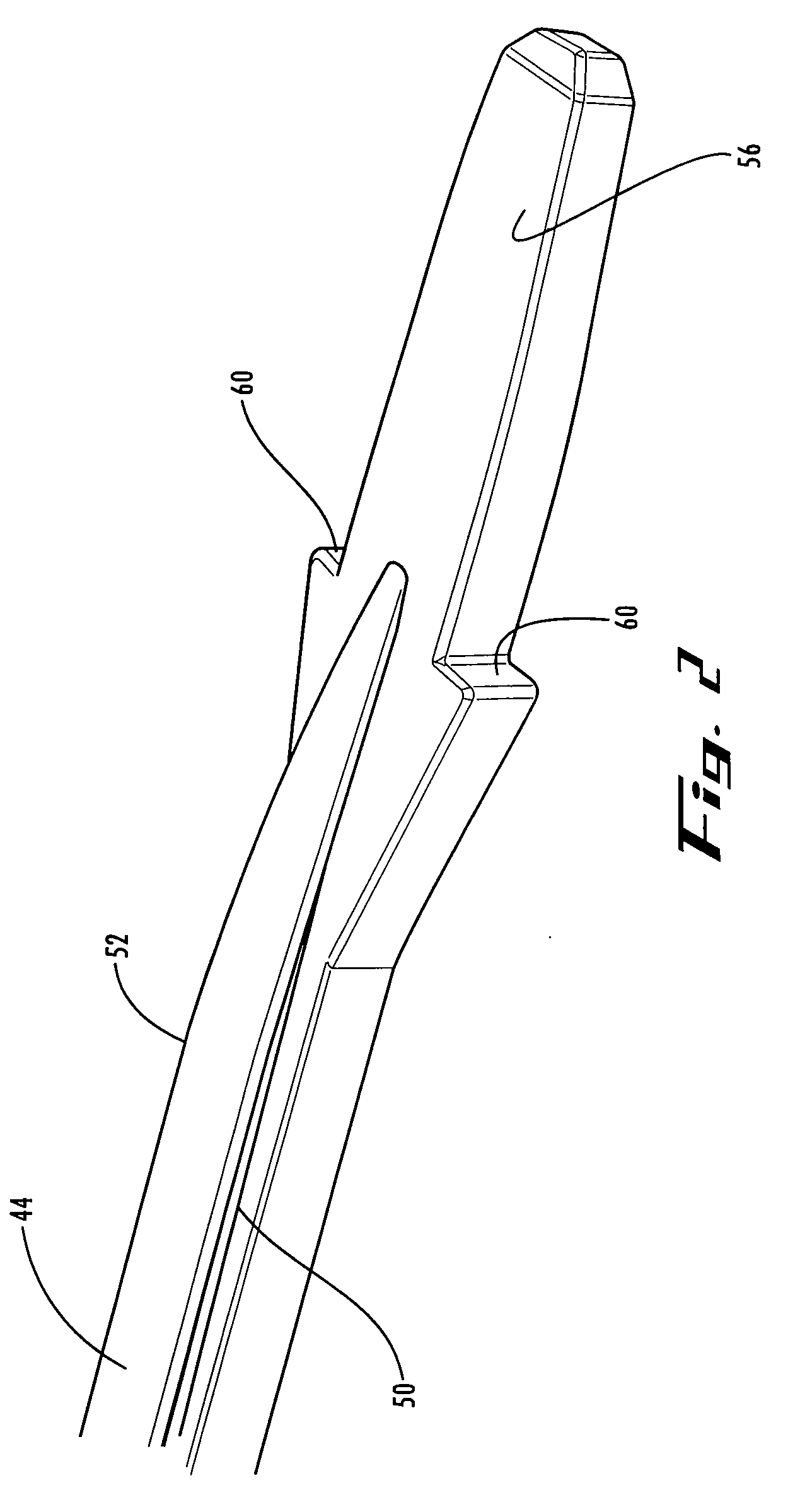Monorail System
a monorail and rail technology, applied in the field of spinal fusion surgery, can solve the problems of painful pressure on the nerve roots, back and radicular pain, and joints are vulnerable to degenerative spinal disorders
- Summary
- Abstract
- Description
- Claims
- Application Information
AI Technical Summary
Benefits of technology
Problems solved by technology
Method used
Image
Examples
Embodiment Construction
[0034]One system of this invention provides an improved method of performing a spinal fusion procedure. Generally, the system of this invention includes a tool having a monorail on one side. The instrument includes a monorail on its lateral side that accommodates various instruments utilized to prepare the disc space. For example, additional instruments such as a chisel, rasp and implant may be designed with a channel corresponding to the monorail, so that the instruments are joined to the distractor for guided and controlled insertion into the disc space. In one embodiment, the monorail instrument is a distractor, which may be inserted into the disc space and rotated to properly distract the disc space.
[0035]As shown in FIGS. 1-4, the monorail instrument is a distractor 40, which includes a rod 42 having a monorail 44 on its lateral side 46. In the embodiment shown in the drawings, monorail 44 includes flat top portion 48 and angled sides 50, 52 (also shown in FIG. 9). Leading end ...
PUM
 Login to View More
Login to View More Abstract
Description
Claims
Application Information
 Login to View More
Login to View More - R&D
- Intellectual Property
- Life Sciences
- Materials
- Tech Scout
- Unparalleled Data Quality
- Higher Quality Content
- 60% Fewer Hallucinations
Browse by: Latest US Patents, China's latest patents, Technical Efficacy Thesaurus, Application Domain, Technology Topic, Popular Technical Reports.
© 2025 PatSnap. All rights reserved.Legal|Privacy policy|Modern Slavery Act Transparency Statement|Sitemap|About US| Contact US: help@patsnap.com



